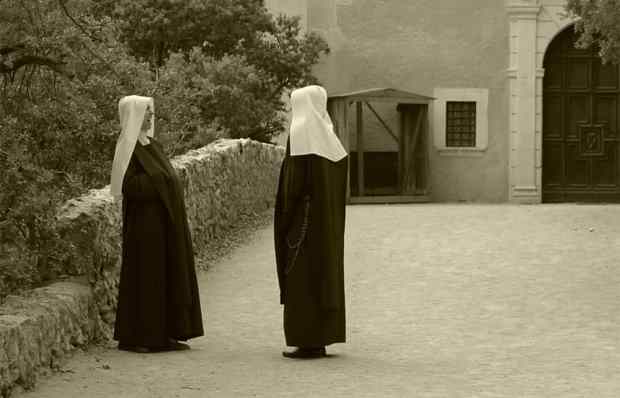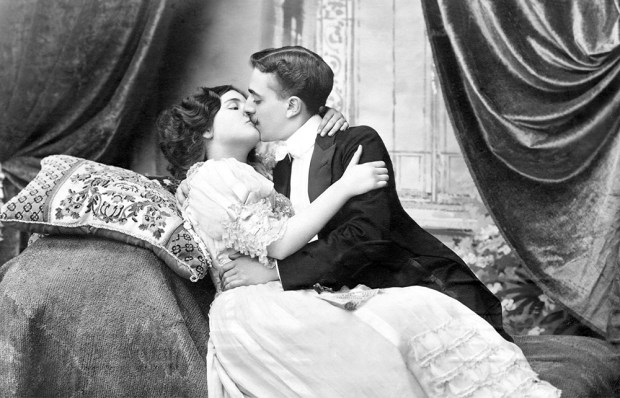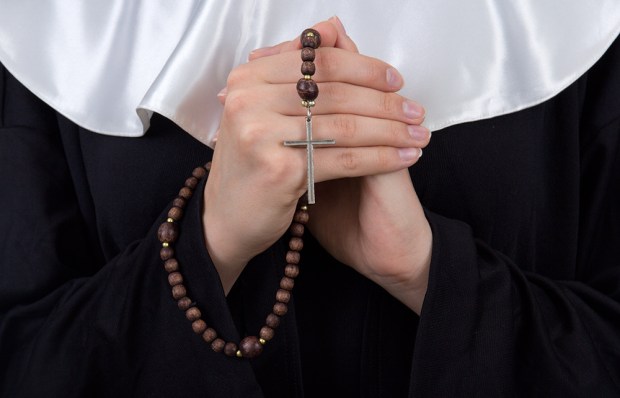In France, or in Provence at least, polite rule number one is to say hello. You must offer a distinct ‘good day’ or ‘good day, ladies and gentleman’, for example, when joining the queue in the baker’s or at the post office, or when getting on a bus or entering a bar. A nod or a wink just isn’t enough. Neither is a self-effacing silence. ‘Bonjour’ is the password.
Since I have discovered it, I have been jovially saluting everyone right, left and centre. The inexplicable hostility I used sometimes to encounter in shops has stopped, and moreover the French have revealed themselves, incredibly, to have a fine sense of humour, which is roughly the opposite of my impression before I began to say hello indiscriminately. Admittedly, it can be a strain at times, this courtly republican spirit of acknowledging the existence of one’s fellow human beings at all times and under every circumstance, without irony, as though we were all living in a 1950s holiday camp, but it keeps you on your toes.
I have been in conscious possession of the magic word for only a few weeks. But I am using it with growing confidence and occasionally with a degree of virtuosity. Most wonderfully, those bars that I previously avoided because the regulars seemed to react angrily to my silent reticence (which I had erroneously imagined to be a form of politeness) now welcome me into the fold with open arms.
This happened again last Sunday. Driving back from a boozy lunch at dusk, we passed through a dripping, deserted medieval hill village. ‘Fancy another drink?’ I said. She did, she said. The bar was located in a narrow obscure cobbled street. I’d been in once before, in the days before I knew the password. My reception, as I remembered it, had been chilly. A light was on. We went in, bonjouring and bonsoiring like mad to the barman and to the cat. ‘Rotten night. Two pastis,’ I said to the barman. ‘Is that your girlfriend?’ he said, looking over at her as he poured. ‘I’m still trying,’ I said. ‘That’s good, because I myself am looking for a mistress,’ he said. ‘With your permission I will also try.’ After he’d added water to our drinks, he winked at me and tipped an extra slug of spirit on top of mine because he perceived that I was drunk but in a good way.
Then a fat man of about 40 with broken trainers came in and I bonsoired him half to death. ‘I’m an orphan,’ this man explained after he’d slumped down on a chair and got his breath back. ‘Mother dead. Father dead. I was a small boy,’ he added, holding up four tragic fingers. He related the story of his sad life. Unfluent in French, I found most of it incomprehensible. It sounded thoroughly miserable, though. If the barman had heard the story 100 times before, it still gripped him. He hugged himself tightly as he listened.
Then what looked like the village drunk came in — a young woman in a baseball cap with no front teeth. I mitrailleused her with greetings. She was from Tahiti, she said, and she had an interesting tattoo on her back. Would I like to see it? Absolutely, I said. She began peeling back the shoulder of her purple puffa jacket. But she had on too many layers and getting them off was too laborious, so she gave up. Then a skinny Arab lad entered, took us all in at a shrewd glance, was visibly amused, ordered coffee, and pulled up a chair beside us. After that he sat with his elbows on his knees looking at the floor, listening to what was being said, and smiling to himself.
I bought more drinks, including the present company in the round. The simple offer of a drink rendered the fat orphan speechless and confused. Recovering slightly, he chose a scotch and coke and offered me his hand for a handclap with a touching vertical forearm. He had tears in his eyes. Then he presented me with his card. It gave his occupation as personal trainer specialising in ‘musculation’. The Tahitian woman was also enormously grateful. She offered up her bemused alcoholic face to be kissed and I kissed it passionately all over. The barman looked me solemnly in the eye and thumped himself on the heart with his fist.
And so we went on: the orphan explaining to us his presence in the world; the young Muslim smiling down at the floor; the barman bestowing benisons of alcohol and love, and blowing kisses from across the bar at my woman; while from time to time I made a point of going over to the Tahitian alcoholic and kissing her all over her mad face.
Got something to add? Join the discussion and comment below.
Get 10 issues for just $10
Subscribe to The Spectator Australia today for the next 10 magazine issues, plus full online access, for just $10.
You might disagree with half of it, but you’ll enjoy reading all of it. Try your first month for free, then just $2 a week for the remainder of your first year.















Comments
Don't miss out
Join the conversation with other Spectator Australia readers. Subscribe to leave a comment.
SUBSCRIBEAlready a subscriber? Log in